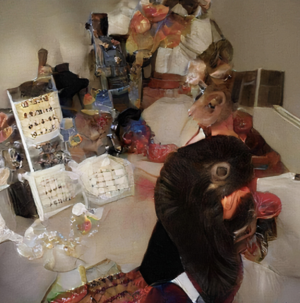Visual Agnosia
From BurnZero
Visual agnosia is a partial to complete inability to mentally process visual information, despite having intact vision. Individuals with visual agnosia may have good acuity, color perception, and visual field, but they struggle to interpret or identify objects, faces, or other visual stimuli. They may have difficulty recognizing familiar objects or faces, even though they can see them clearly.
There are different types of visual agnosia, each affecting different aspects of visual processing. Here are some common subtypes:
- Apperceptive agnosia: This type involves a failure to perceive or integrate basic visual features, such as shapes, colors, or spatial relationships. Individuals with apperceptive agnosia may have difficulty copying or matching objects, but they may still be able to recognize objects through other sensory modalities, such as touch or sound.
- Associative agnosia: This type involves a difficulty in connecting visual information with stored knowledge and meaning. Individuals with associative agnosia may be able to perceive basic visual features but struggle to recognize or assign meaning to objects or faces. For example, they may see a key but not understand its function or name.
- Prosopagnosia: Also known as face blindness, prosopagnosia specifically affects the ability to recognize and remember faces. People with prosopagnosia may have difficulty identifying familiar individuals, including family members or close friends, solely based on their facial appearance. They may rely on other cues, such as voices or context, to recognize people.
Visual agnosia arise from the effects of neurological conditions or brain injuries, such as stroke, traumatic brain injury, or neurodegenerative disorders, or via the use of specific medicines such as psychedelics.
